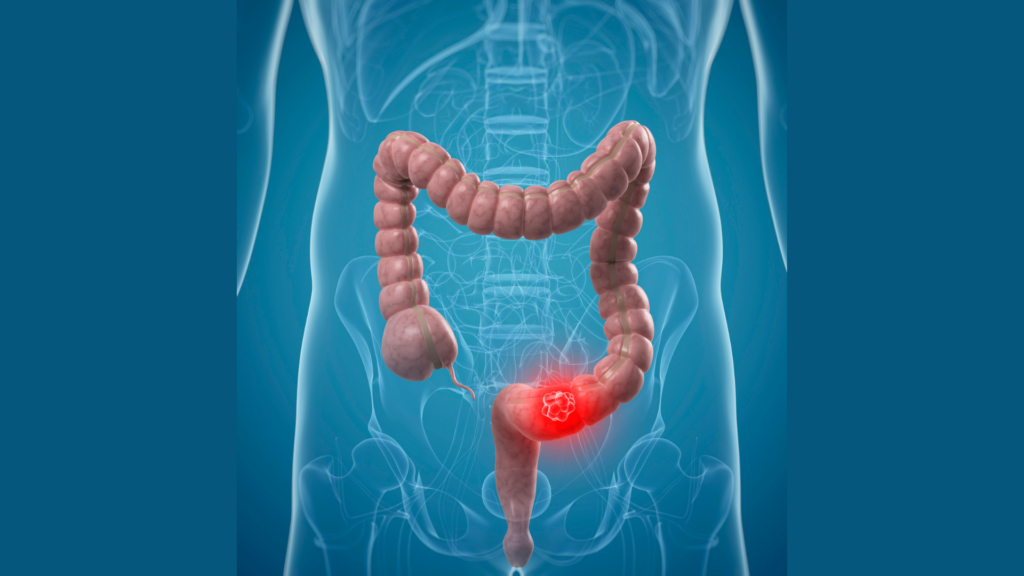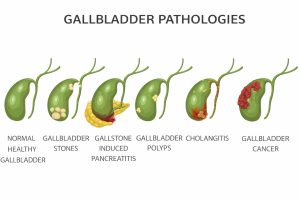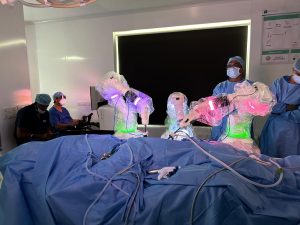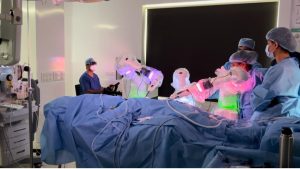Colon cancer is a significant global health concern, and the timely detection of this disease is essential for improving survival rates.
Dr. Shrikanth Gadiyaram, an expert in gastrointestinal & colorectal surgery, emphasizes the significance of colon cancer screening and understanding the importance of early detection of colon cancer enabling curative treatment.
Importance of Colon Cancer Screening
- Early detection: The purpose of screening is to detect cancer at an early stage, increasing the chances of successful treatment. Screening is crucial for detecting early-stage colon cancer, as it often does not present any symptoms.
- Preventive screening can remove precancerous polyps before they progress into cancer. This practice significantly reduces the incidence of colon cancer
- Regular screening: – Research has shown that regular screening can significantly reduce mortality rates associated with colon cancer. Early detection leads to less intrusive and more effective treatments.
- Risk Assessment: Screening assesses risk variables such as family history, lifestyle, and genetic predispositions to advise prevention and surveillance.
How Colon Cancer Screening is Done
It is essential to have a comprehensive understanding of screening methods to deliver optimal patient care.
- Colonoscopy: This screening approach is considered the most effective for detecting colon cancer. A colonoscope, a flexible tube equipped with a camera, is employed to examine the colon and rectum thoroughly. This technique enables the real-time detection and removal of polyps. Advancements in modern technology, such as high-definition imaging and polyp-detecting technologies, have significantly enhanced this technique.
- Flexible Sigmoidoscopy: This procedure focuses solely on the lower part of the colon, much like a colonoscopy. Although it may not provide a complete overview, this approach is less intrusive and frequently employed alongside other screening techniques.
- Fecal Occult Blood Test (FOBT) and Fecal Immunochemical Test (FIT): These tests are capable of detecting occult blood in the stool, which could potentially be indicative of the presence of cancer. Although these procedures are straightforward, they are not as accurate as a colonoscopy and may necessitate further follow-up procedures for positive results.
- CT Colonography (Virtual Colonoscopy): This method uses the latest technology to offer a comprehensive visualization of the colon and rectum. This procedure is a less invasive alternative to a traditional colonoscopy, making it a suitable option for patients who are unable to undergo conventional procedures.
Conclusion
Colon cancer screening is an essential preventive measure that has the potential to save lives by detecting and intervening early. Gastrointestinal surgeons play a crucial role in this process, employing advanced techniques and technologies to ensure thorough and precise screenings.
Patients have access to world class minimally invasive surgery at Sahasra hospitals, Jayanagar, Bangalore, Karnataka, India, in their battle against colon cancer
For further details, you can call and book an appointment at Sahasra Hospital on 9880105829




